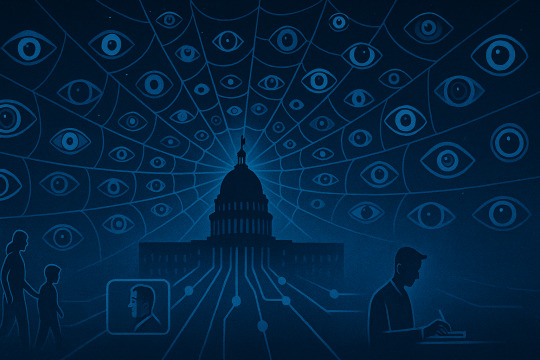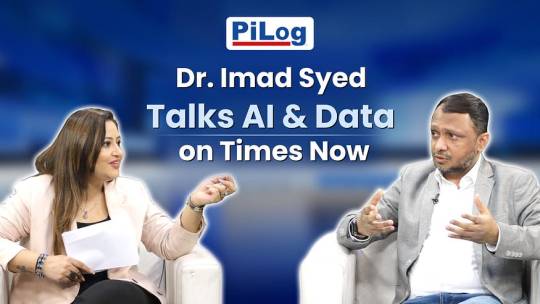#DataPrivacy
Explore tagged Tumblr posts
Text
Are YOUR Digital Rights Under Attack? | GDPR Reform
youtube
Hey! I know we're all very busy looking at other places right now but this is kinda concerning
#advice on how to deal with this is welcomed#and don't tell me to get a vpn‚ that's a capitalist solution#eu#ai#dataprivacy#online privacy#european union#regulation loosening#slippery slope#YouTube#video#politics
254 notes
·
View notes
Text
Hey friends, come follow us on Mastodon @[email protected]! We post a lot of content there, and Ariel is a lot more active with replies over there (usually….).
#Mastodon#Fediverse#ClimateJustice#SolarpunkPresentsPodcast#solarpunk#podcast#podcasting#SocialMedia#Privacy#DataPrivacy#FederatedInstances#federation#DataHarvesting#FacebookAlternative#MetaAlternative#ActivityPub
18 notes
·
View notes
Text
Your Data on the Line: How Trump and Palantir Are Watching Every American

In recent weeks, a growing network of data‐sharing initiatives has quietly knit together disparate government systems into what increasingly looks like a unified surveillance apparatus.
At the center of this push is Palantir Technologies—Peter Thiel’s data‐analysis firm—which has racked up more than $113 million in federal spending since 2017 and just won a new $795 million Department of Defense contract to expand its “Foundry” platform across the U.S. government.
From Executive Order to “Master Database”
In March, President Trump signed an executive order directing all federal agencies to break down data silos and share information freely. According to The New York Times, the administration has tapped Palantir’s Foundry to stitch together records from the Department of Homeland Security, Health and Human Services, the IRS, Social Security Administration, Medicare and more—raising fears that these once‐separate systems will coalesce into a “master database” of every American’s movements, finances, benefits status, health data, and beyond.
Palantir’s pitch is efficiency: better fraud detection, faster emergency response, and “data-driven governance.” But when “efficiency” means having wall-to-wall access to Americans’ most intimate information, the line between public service and state surveillance blurs—and nobody in the administration has publicly outlined guardrails on who can see or act on this mash-up of personal data.
Real-World Examples: How Camera Feeds Fuel New Abuses
1. Abortion Surveillance via ALPR Cameras
Just last week, reporting by 404 Media revealed that a Texas sheriff’s office ran a nationwide lookup of more than 83,000 automatic license-plate reader (ALPR) cameras to track down a woman who had self-administered an abortion—even searching cameras in states like Washington and Illinois where abortion remains legal 404 Media. Marketed as a tool to stop carjackings or find missing persons, Flock’s ALPR network has been repurposed to enforce contested reproductive-rights laws, granting one state’s law enforcement extraterritorial reach into another’s protected domains.
2. ICE’s Side-Door into Local Camera Systems
Simultaneously, immigration authorities have been piggy-backing on the same Flock network. Internal logs show local police around the country performing thousands of ALPR searches for “ICE,” “immigration,” and “deportation” reasons—even though U.S. Immigration and Customs Enforcement has no formal contract with Flock 404 Media. This “informal” access effectively turns small-town camera grids into a nationwide dragnet, enabling federal agents to track immigrant communities without oversight or transparency.
What Else Could This Database Be Used For?
Once data from tax returns, benefit records, license plates, and even social-media accounts are fused into a single pool, the possibilities for invasive—and often illegal—applications multiply:
Political Surveillance & Protest Policing Merge DMV photos with protest footage to identify marchers, then deploy audits or criminal charges to chill dissent.
Predictive Policing & Risk Profiling Feed individuals’ location, purchase, and communications histories into AI models that rank “public-safety risk,” justifying preemptive stops or heavier patrols in certain neighborhoods.
Voting Suppression Cross-reference voter rolls with benefit-recipient lists or travel patterns to flag “suspicious” ballots or intimidate targeted demographics with misleading outreach.
Insurance & Employment Discrimination Insurers and employers could buy or co-opt government data to deny coverage or jobs based on health history (e.g., clinic visits), credit records, or even past travel.
Family Separation & Child Protective Actions Social-services and education records fused with location data could trigger automated CPS investigations—potentially resulting in unwarranted removals of children from their homes.
Commercial Exploitation & Data Brokerage Once assembled, this all-in-one dataset would be a gold mine for marketing firms—enabling ultra-targeted ads and price discrimination down to the individual.
Each of these scenarios leverages the same dynamics: previously siloed data—whether from the IRS, SSA, camera networks, or cell-tower logs—becomes instantly searchable and actionable under Palantir’s dashboard. As more agencies sign on, opt-out becomes nearly impossible without losing access to essential services.
Can We Stop It?
Legal challenges by privacy advocates, labor unions, and student groups are now underway, arguing that this mass data-sharing violates constitutional protections against unreasonable searches and pinpoints marginalized communities for surveillance. Yet until courts impose clear limits or Congress enacts robust privacy legislation, the federal government—and its tech contractors—will continue to expand this unprecedented data empire.
#SurveillanceState#DataPrivacy#Palantir#TrumpEra#BigBrother#CivilLiberties#TechWatch#PrivacyMatters#GovernmentOverreach#KnowYourRights#Privacy#data privacy#online privacy#internet privacy#safety#us politics#Politics#fuck maga#maga morons#maga#1984#elon musk#fuck elon#elongated muskrat#Elon#surveillance state#authoritarianism#autocracy#peter thiel
6 notes
·
View notes
Text
Privacy Concerns: How Gen Z is Protecting Their Data?
What’s the first thing you do when a pop-up asks, “Do you accept cookies?”—immediately click “Accept” or hesitate as if pondering the secrets of the universe?
If you’re Gen Z, the answer might surprise you. While they’re often labelled as the oversharing Snapchat generation, they’re also becoming the poster children for digital privacy warriors. Want to know how? Stick around. By the end of this blog, you’ll not only uncover Gen Z’s surprising strategies for safeguarding their data but also pick up a few tips to reclaim control of your own.

The Paradox of Gen Z: Masters of Oversharing, Yet Privacy-Conscious
On the surface, Gen Z seems like the generation that lives for Instagram reels, TikTok challenges, and viral tweets. But underneath the filters and hashtags lies a surprising truth: they care—deeply—about their digital footprints. They may post a dance video on TikTok but won’t hesitate to use pseudonyms on Facebook or create private Instagram accounts (finstas) to keep their personal lives personal.

How Did Gen Z Get So Privacy-Savvy?
Growing Up With Data Breaches
From hearing about massive breaches (remember the infamous Cambridge Analytica scandal?) to watching documentaries like The Social Dilemma, Gen Z grew up knowing that even their memes could fuel someone’s data-mining empire. Lesson learned? Share strategically.

Cybersecurity 101 Is Their Second Nature
For this generation, two-factor authentication isn’t optional—it’s a lifestyle. “123456” as a password? Please, that’s so 2010. Gen Z knows their passwords should look like they smashed their keyboard in frustration.

Tech Education in Schools
Unlike older generations, who stumbled their way through the internet’s dark corners, Gen Z often received digital literacy education. They know the difference between a phishing scam and an actual email from their bank. (Pro tip: If it starts with “Dear Customer,” run.)

Privacy Tips We Can All Steal (Ethically, of Course)
Gen Z is showing us the way, and here are some of their best practices:
Think Before You Link
Clicking on that shady “You’ve Won a Free iPhone!” ad is the digital equivalent of walking into a trap. Gen Z gets it—they avoid suspicious links like the plague.

Limit Permissions
Why should a weather app need access to your contacts? Gen Z regularly audits app permissions, keeping unnecessary snoopers at bay.

Use Burners for Fun
They know that creating a “throwaway” email address for subscriptions keeps spam out of their primary inbox.

The Ironic Humor of Gen Z’s Privacy Stance
Isn’t it ironic that the generation branded as addicted to screens is leading the charge for digital privacy? They’ll meme about data breaches but won’t let companies snoop on their Spotify playlists.

Conclusion: A Balancing Act
Gen Z proves you can live your best digital life and protect your data. Whether it’s using VPNs, switching to encrypted messaging apps, or simply saying no to invasive permissions, they’re rewriting the rules for online privacy.
The takeaway? Protecting your data doesn’t mean going off the grid; it means being intentional with your digital choices.

Do you think Gen Z has cracked the code on balancing online presence and privacy, or are they just lucky digital natives? Drop your thoughts in the comments below!

6 notes
·
View notes
Text
Apple Just Closed a Serious macOS Privacy Hole
Hackers could exploit Spotlight plugins to steal your photos, location data, and even info from linked iCloud devices—without consent.
Source: SecurityWeek | Apple
Read more: CyberSecBrief
2 notes
·
View notes
Text
Why VPNs Are No Longer Optional for Professionals in 2025
In 2025, using a VPN has evolved from being a nice-to-have to a non-negotiable aspect of professional life.
We are in a landscape where remote work, cross-border client management, and data-driven decision-making are core to business operations. But this increased flexibility comes with risks: cyber-attacks, data interception, and geo-restrictions can disrupt your workflow, expose client data, and damage your brand reputation.
A Virtual Private Network (VPN) encrypts your internet traffic, shielding your data from prying eyes on unsecured networks. This means you can work safely from coffee shops, airports, co-working spaces, or even your home office without fear of data leaks.
Moreover, VPNs empower professionals to access geo-restricted research, tools, and platforms needed for your work. For example, you can test global campaigns, access region-locked market data, and securely collaborate with international clients without friction.
🔹 Benefits of using a VPN for professionals:
End-to-end encryption for sensitive communications
Protection against public Wi-Fi threats
Seamless access to global resources
Peace of mind for you and your clients
If you care about your personal brand, client trust, and workflow efficiency, a VPN is no longer optional.

2 notes
·
View notes
Text
WhatsApp Uncovers Paragon Spyware Campaign Across 24+ Countries

Meta's WhatsApp has revealed that Paragon Solutions, an Israeli spyware company, targeted approximately 90 users—including journalists and civil society members—across more than two dozen countries. The spyware, known as Graphite, was deployed through "zero-click" attacks, allowing it to infiltrate devices without any user interaction.
Details of the Attack
The targeted individuals received notifications from WhatsApp confirming their inclusion in the attack. The spyware's "zero-click" attack methodology means that the targets did not need to interact with malicious content to be compromised. Graphite allows extensive access to infected devices, including reading encrypted messages.
Paragon Solutions' Background
Paragon Solutions, an Israeli firm, has previously marketed its spyware as ethical, claiming to sell only to stable democratic governments. However, this incident raises concerns about the company's practices and the potential misuse of its technology.
WhatsApp's Response
In response to the attack, WhatsApp issued a cease-and-desist letter to Paragon Solutions and disrupted the hacking effort. The incident has been reported to law enforcement and Citizen Lab, a Canadian internet watchdog.
Implications for Privacy and Security
This incident underscores the ongoing challenges in protecting user privacy and security against sophisticated spyware attacks. It highlights the need for robust security measures and accountability in the commercial spyware industry.
4 notes
·
View notes
Text
🚨 2025’s scariest cyber threats aren’t what you expect. AI hacking your voice? Ransomware locking hospitals? Deepfake blackmail?
We broke down the top 5 cybersecurity threats coming next year—and exactly how to fight back.
🔗 Read the full guide: https://infinkey.com/cybersecurity-threats-in-2025/

#Cybersecurity#Tech#2025Trends#Hacking#DataPrivacy#Infosec#Deepfake#Ransomware#AISecurity#StaySafeOnline
3 notes
·
View notes
Text
The Intersection of Driver’s Licenses and Cybersecurity in 2025
As we look toward 2025, cybersecurity is becoming an increasingly critical aspect of the digital transformation of driver’s licenses. With more Canadians opting for digital driver’s licenses (DLs), ensuring these digital IDs are protected from cyber threats is paramount. The convergence of driver’s licenses and cybersecurity is reshaping how individuals manage their credentials and how governments secure sensitive information in the digital age.
The Rise of Digital Driver’s Licenses
Digital driver’s licenses have emerged as an essential part of Canada’s shift toward smarter, more efficient services. Provinces like Ontario, British Columbia, and Alberta have started offering digital licenses, allowing residents to store their DLs on smartphones and access them via secure apps. This shift is not only more convenient for drivers but also reduces physical waste and improves overall efficiency in verification processes.
However, with these advances come new risks, particularly related to cybersecurity. As digital licenses become more widespread, ensuring their security is a growing concern for both citizens and government agencies.
To stay updated on the latest digital licensing guidelines, licenseprep.ca is a valuable resource that provides information about digital driver’s licenses and the security protocols involved in their use.

Cybersecurity Challenges in Digital Licenses
While digital driver’s licenses offer many benefits, they also introduce several cybersecurity risks that need to be addressed:
1. Data Breaches and Hacking
With digital licenses stored on smartphones, there is the risk of data breaches or hacking. Cybercriminals could potentially gain unauthorized access to users’ personal information, leading to identity theft or fraudulent activities. Securing the digital infrastructure that houses these licenses is essential to mitigating these threats.
2. Phishing and Fraud
Phishing attacks, where cybercriminals impersonate legitimate institutions to steal sensitive data, are a growing concern. Digital licenses could be targeted by these malicious actors, tricking users into sharing login credentials or personal information under false pretenses.
3. Privacy Concerns
As digital driver’s licenses become more integrated with other smart city systems, the amount of data being shared and stored increases. Ensuring that user privacy is protected and that data isn’t misused is crucial. A robust data encryption system must be in place to prevent unauthorized access to users' sensitive information.
Solutions to Strengthen Cybersecurity
To safeguard the future of digital driver’s licenses, various cybersecurity measures are being implemented:
1. Encryption and Multi-Factor Authentication (MFA)
Using end-to-end encryption ensures that the information stored on a digital driver’s license is protected from unauthorized access. Additionally, multi-factor authentication (MFA) can be used to add an extra layer of security when accessing or updating license information.
2. Blockchain Technology
Blockchain technology offers a decentralized and secure way of verifying identity, which could be used to authenticate digital licenses. By storing data across multiple nodes, blockchain reduces the risk of single points of failure that could be exploited by cybercriminals.
3. Regular Security Audits and Updates
Governments and agencies responsible for digital licensing systems will need to conduct regular security audits to identify vulnerabilities. Timely security updates will also be crucial in protecting against emerging threats and keeping the systems up to date with the latest encryption protocols.
The Road Ahead
As Canada moves closer to a fully digital future, the intersection of driver’s licenses and cybersecurity will become even more important. With proper safeguards in place, digital driver’s licenses will not only provide convenience but will also ensure that citizens’ data remains secure.
For Canadians looking to stay informed about digital driver’s licenses and their role in the evolving digital landscape, licenseprep.ca is a helpful platform to track the latest updates and best practices in digital ID security.
#Cybersecurity#DigitalLicensing#SmartCities#DataPrivacy#Blockchain#DigitalDriverLicense#LicensePrep#FutureOfSecurity#SecureLicenses#LicenseprepCanada
2 notes
·
View notes
Text
Artificial Intelligence in Digital Marketing: Definition and Tools

AI in digital marketing refers to employing intelligent technologies to enhance how businesses engage with and sell to their customers. Assists with data management, automation, customization, and refinement of campaigns. But what exactly does AI do in marketing? It uses machine learning, data analysis, and natural language processing to perform tasks faster and more accurately than humans.
Many make use of AI to simplify marketing. Customer service chatbots respond to clients in seconds. Tools using predictive analytics make it easier for businesses to grasp future shifts. Some programs are capable of generating content for blogs, emails, and even product descriptions. Messages intended for particular customers can be tailored through personalization platforms, making them more appealing. Marketing automation tools streamline tedious processes such as email dispatching and advertising, thereby cutting down on time and effort.
AI enhances digital ads as well. It modifies cost-per-click bids, targets audiences, and adjusts creatives simultaneously in order for businesses to derive the most benefit. Sentiment analysis tools automatically filter and analyze social media channels and online reviews to assess client’s’ perceptions. Customer segmentation tools analyze persona’s behavior to aggregate them into more manageable groups, thus enhancing campaign efficiency.
What are the advantages? AI saves labor in completing repetitive tasks. It provides businesses with comprehensive insights, assisting in making better decisions. It delivers content at scale and enhances the customer experience by providing tailored suggestions. It even has the capacity to determine trends, which is advantageous for businesses.
AI can, however, contain imperfections. If an algorithm is trained using biased data, it may contain biases. Misinformation in AI-generated content can lead to erroneous information being disseminated to customers. There are issues of privacy and security with a significant amount of data. Some people are concerned with the issue of transparency—who owns the content generated by AI?
AI is evolving in digital marketing, creating new opportunities and difficulties at the same time. To remain relevant in today's society, engaging with professionals is the best way to go. PLUS27digital specializes in AI-based marketing strategy development that deliver incredible outcomes. Would you like to learn how AI could improve your business? Let's have a discussion.
#AI#ArtificialIntelligence#DigitalMarketing#MarketingTech#MachineLearning#NLP#MarketingStrategy#MarketingAutomation#BusinessGrowth#Chatbots#PredictiveAnalytics#Personalization#DataAnalytics#ContentMarketing#AdOptimization#CustomerInsights#AIForBusiness#MarketingInnovation#SmartMarketing#AIContent#AISEO#DigitalTransformation#MarketingTrends#DataPrivacy#AIEthics#OnlineMarketing#SocialMediaMarketing#SEO#EcommerceMarketing#StartupMarketing
2 notes
·
View notes
Text
O&O SafeErase 19
Say goodbye to data recovery risks. Whether it's personal files, browser history, or an entire hard drive, this tool uses advanced algorithms to protect your privacy.

4 notes
·
View notes
Text
Title: Are We Truly Free in a World Obsessed with Our Data?

A few years ago, I realised that my phone knew my desires better than I did. This isn’t an exaggeration. Every notification, every recommendation seemed perfectly timed. But how? The answer is simple: my data, constantly collected, was feeding invisible algorithms.
This reality disturbed me for a long time. Not just because I hate the idea of being watched, but because I wondered: if my choices are influenced by algorithms, am I still free?
A World of Data, A World of Control?
We live in an era where our data is extracted and monetised by companies we often don’t even know exist. Yes, we’re aware that Google and Facebook collect our information. But few people know about data brokers – these companies that buy, analyse, and resell our digital lives.
Shoshana Zuboff, in The Age of Surveillance Capitalism, describes this phenomenon as a new form of power. She argues that our behaviour has become a raw material, extracted and exploited to anticipate our actions and influence our decisions. What struck me most in her analysis is the idea that digital surveillance is no longer just a tool, but an entire economy.
Can We Talk About Freedom When Everything Is Anticipated?
I grew up believing that freedom meant having choices. But today, every choice I make online is guided by algorithms. When Spotify recommends a song, is it my personal taste or a machine that analysed my past listens? When Netflix suggests a film, is it a free choice or a calculated suggestion designed to keep me on the platform longer?
Byung-Chul Han, a contemporary philosopher, criticises this society of transparency where everything must be visible, measurable, and exploitable. He writes that in this quest for data, we lose our opacity – that space where our individuality could exist without constant scrutiny. And without that opacity, freedom becomes an illusion.
Why Should We Care?
Many might say, “I have nothing to hide, so it doesn’t matter.” But it’s not just about privacy. It’s about control. Every piece of data collected is another brick in a structure where our behaviours are predicted, influenced, and sometimes manipulated.
When data brokers sell our information to advertisers, it’s not just to show us an ad for shoes. It’s to shape our digital environment so that we buy those shoes. Or worse, to influence our political opinions, our relationships, or even our ambitions.
Where Are We Headed?
What troubles me most is how normal this data collection has become. We accept cookies without thinking. We give apps access to our contacts, location, and photos simply because they ask for it. And each time we do, we give away a little more of our freedom.
But not all is lost. The first step is to understand this system. The second is to act. My Medium article dives deeper into how our data is extracted and sold – but more importantly, what it means for our freedom. Because in the end, the question is simple: do we really want to live in a world where our choices are no longer truly ours?
Read the full article here
#DataPrivacy#SurveillanceCapitalism#DigitalFreedom#PhilosophyOfTechnology#ByungChulHan#ShoshanaZuboff#DataBrokers#OnlinePrivacy#TechEthics#DigitalSurveillance#FreedomOfChoice#PrivacyMatters#DigitalControl#AlgorithmicBias#TechPhilosophy#MediumWriters#DataExtraction#TumblrWriters#InternetFreedom
2 notes
·
View notes
Text
How Dr. Imad Syed Transformed PiLog Group into a Digital Transformation Leader?
The digital age demands leaders who don’t just adapt but drive transformation. One such visionary is Dr. Imad Syed, who recently shared his incredible journey and PiLog Group’s path to success in an exclusive interview on Times Now.

In this inspiring conversation, Dr. Syed reflects on the milestones, challenges, and innovative strategies that have positioned PiLog Group as a global leader in data management and digital transformation.
The Journey of a Visionary:
From humble beginnings to spearheading PiLog’s global expansion, Dr. Syed’s story is a testament to resilience and innovation. His leadership has not only redefined PiLog but has also influenced industries worldwide, especially in domains like data governance, SaaS solutions, and AI-driven analytics.
PiLog’s Success: A Benchmark in Digital Transformation:
Under Dr. Syed’s guidance, PiLog has become synonymous with pioneering Lean Data Governance SaaS solutions. Their focus on data integrity and process automation has helped businesses achieve operational excellence. PiLog’s services are trusted by industries such as oil and gas, manufacturing, energy, utilities & nuclear and many more.
Key Insights from the Interview:
In the interview, Dr. Syed touches upon:
The importance of data governance in digital transformation.
How PiLog’s solutions empower organizations to streamline operations.
His philosophy of continuous learning and innovation.
A Must-Watch for Industry Leaders:
If you’re a business leader or tech enthusiast, this interview is packed with actionable insights that can transform your understanding of digital innovation.
👉 Watch the full interview here:
youtube
The Global Impact of PiLog Group:
PiLog’s success story resonates globally, serving clients across Africa, the USA, EU, Gulf countries, and beyond. Their ability to adapt and innovate makes them a case study in leveraging digital transformation for competitive advantage.
Join the Conversation:
What’s your take on the future of data governance and digital transformation? Share your thoughts and experiences in the comments below.
#datamanagement#data governance#data analysis#data analytics#data scientist#big data#dataengineering#dataprivacy#data centers#datadriven#data#businesssolutions#techinnovation#businessgrowth#businessautomation#digital transformation#piloggroup#drimadsyed#timesnowinterview#datascience#artificialintelligence#bigdata#datadrivendecisions#Youtube
3 notes
·
View notes
Text
Niantic is building a ‘geospatial’ AI model based on Pokémon Go player data
Scans of the world from Pokemon Go and Ingress are the backbone of Niantic’s AI model, which aims to navigate the world like ChatGPT spits out text.

youtube
#Tumblr#PokemonGo#Niantic#GeospatialAI#AugmentedReality#DataPrivacy#GamingNews#ArtificialIntelligence#SpatialIntelligence#VPS#MobileGaming#ARTechnology#Youtube
2 notes
·
View notes
Text
"Generative AI and Global Politics: Shaping the Future of Innovation and Climate Action"

One of the most discussed topics today is Generative AI and its growing impact on businesses and society. This isn’t just a technological advancement but a transformation of how industries operate. Companies are increasingly using AI to drive productivity and innovation, reshaping workflows and decision-making processes. However, this trend brings ethical and regulatory challenges, with concerns about how AI might affect jobs, data privacy, and social equity becoming central to the conversation. (read more)
#ArtificialIntelligence#ClimateAction#SustainableFuture#Innovation#TechForGood#GlobalPolitics#COP28#DigitalTransformation#AIethics#ClimateChange#FutureOfWork#DataPrivacy#EmergingTech#EnvironmentalJustice#1950s#3d printing#70s#80s
3 notes
·
View notes
Text
Taiwan warns users: Chinese apps breach privacy, send data to China
Taiwan’s security bureau exposes Chinese apps like TikTok and WeChat for harvesting facial data, clipboard contents, and contacts, then sending it straight to servers in China. This sparks fears of state surveillance and urges users to rethink app choices now.
Infosecurity Magazine | National Security Bureau
2 notes
·
View notes